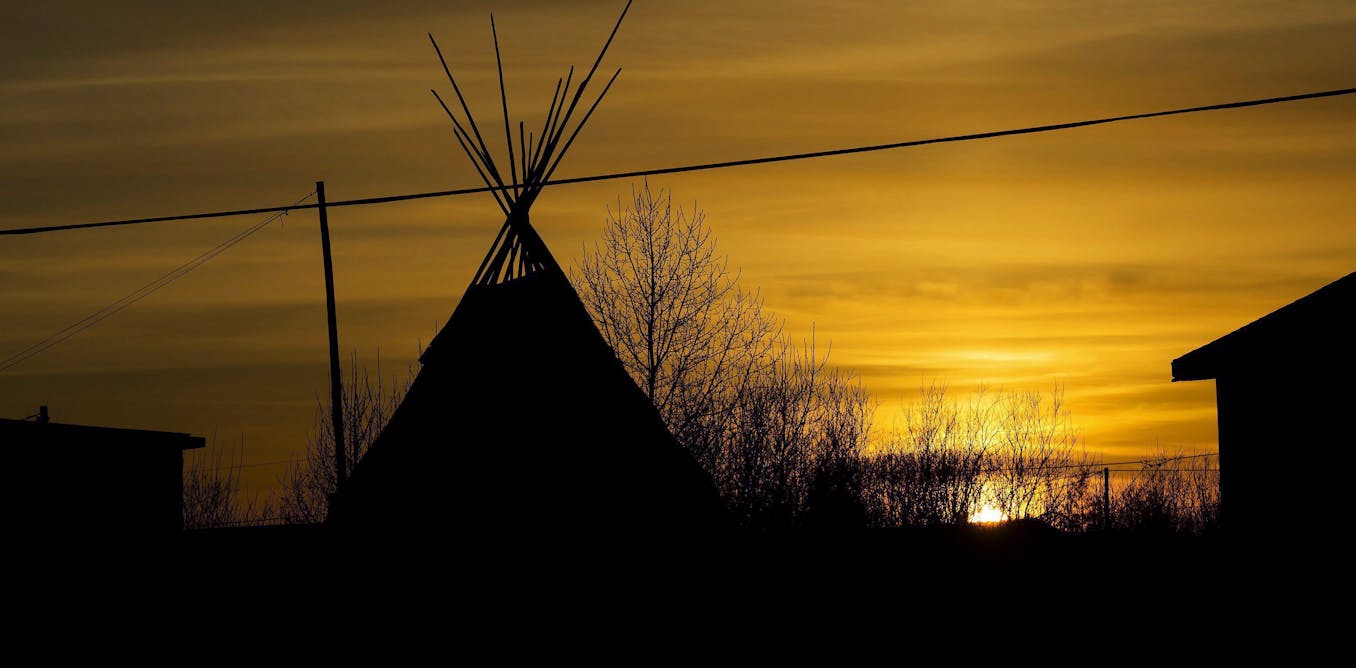Education
Indigenous Health Education Sparks Change for Reconciliation in Canada

Canada’s approach to health professional training must shift to support Indigenous-led education, according to experts advocating for genuine reconciliation. The current landscape reveals a stark shortage of Indigenous healthcare providers, with many communities lacking the essential resources needed for effective health services. This gap highlights the necessity for culturally relevant training that is often absent in traditional medical education.
Indigenous physician and medical educator, Jamaica Cass, emphasizes the importance of community involvement in health training. Practicing in Tyendinaga Mohawk Territory, Cass is the first Indigenous woman in Canada to hold both a medical degree and a PhD. She is actively involved in the Queen’s–Weeneebayko Health Education Program, which aims to train health professionals specifically for remote communities in Ontario, like those of the Moose Cree First Nation.
The Truth and Reconciliation Commission (TRC) released its Final Report a decade ago, outlining 94 Calls to Action aimed at improving the lives of Indigenous peoples in Canada. Only 14 of these calls have seen full implementation. Among them, Calls 23 and 24 focus on increasing the number of Indigenous health professionals and ensuring that all medical students receive education on Indigenous health and the historical impact of residential schools.
The slow progress is evident, with Indigenous health professionals still significantly underrepresented. A recent report from the Conference Board of Canada underscores this, stating that reconciliation in healthcare cannot occur without Indigenous leadership in education and workforce planning. It notes that Indigenous students in rural and remote areas frequently encounter barriers, including inadequate career guidance and culturally relevant curricula, which hinder their pursuit of medical careers.
Efforts such as the Queen’s–Weeneebayko Health Education Program aim to address these challenges by integrating local Indigenous knowledge into medical training. This program recruits students from communities including Moosonee, Fort Albany, and Attawapiskat, focusing on keeping them connected to their home communities while providing a robust education.
The partnership involves the Weeneebayko Area Health Authority (WAHA), Queen’s University, and the Mastercard Foundation. It aims to create a health sciences campus in Moosonee, providing a platform for local students to learn through culturally relevant frameworks. The curriculum incorporates Indigenous ways of knowing, including the Cree language and land-based learning.
Other initiatives across Canada are also making strides. The University of British Columbia offers the Northern and Rural MD Pathway, which encourages applicants with ties to rural or Indigenous communities to apply. Similarly, the University of Manitoba has established the Mahkwa omushki kiim: Pathway to Indigenous Nursing Education (PINE), supporting First Nations, Inuit, and Métis students throughout their educational journey.
These programs prioritize the long-term health of Indigenous communities by ensuring that students receive consistent education from culturally competent providers. As trust in the healthcare system strengthens, communities are more likely to seek care early, which leads to better health outcomes.
Despite these promising developments, systemic change remains essential. Indigenous students face numerous challenges, including financial barriers to education, a lack of affordable housing, and underfunded K–12 schools that leave them less prepared for competitive admissions. Addressing racism and isolation in professional programs is also crucial.
Reconciliation extends beyond apologies and ceremonies; it demands structural change in healthcare. This involves enhancing the Indigenous health workforce, recognizing Indigenous knowledge alongside Western medicine, and ensuring Indigenous voices lead health program governance. Indigenous-led health education addresses these fundamental issues, transforming promises of reconciliation into tangible outcomes for patients and communities.
As Canada marks ten years since the TRC’s Final Report, it is clear that the path to reconciliation lies in robust support for Indigenous-led educational initiatives. The programs currently in place demonstrate the potential for success, and the next step is to transition these efforts from pilot projects to long-term commitments.
Support for Indigenous-led education is vital for shifting reconciliation from mere rhetoric to meaningful practice across communities nationwide.
-

 Science3 months ago
Science3 months agoToyoake City Proposes Daily Two-Hour Smartphone Use Limit
-

 Top Stories3 months ago
Top Stories3 months agoPedestrian Fatally Injured in Esquimalt Collision on August 14
-

 Health3 months ago
Health3 months agoB.C. Review Reveals Urgent Need for Rare-Disease Drug Reforms
-

 Technology3 months ago
Technology3 months agoDark Adventure Game “Bye Sweet Carole” Set for October Release
-

 World3 months ago
World3 months agoJimmy Lai’s Defense Challenges Charges Under National Security Law
-

 Lifestyle3 months ago
Lifestyle3 months agoVictoria’s Pop-Up Shop Shines Light on B.C.’s Wolf Cull
-

 Technology3 months ago
Technology3 months agoKonami Revives Iconic Metal Gear Solid Delta Ahead of Release
-

 Technology3 months ago
Technology3 months agoApple Expands Self-Service Repair Program to Canada
-

 Technology3 months ago
Technology3 months agoSnapmaker U1 Color 3D Printer Redefines Speed and Sustainability
-

 Technology3 months ago
Technology3 months agoAION Folding Knife: Redefining EDC Design with Premium Materials
-

 Technology3 months ago
Technology3 months agoSolve Today’s Wordle Challenge: Hints and Answer for August 19
-

 Business3 months ago
Business3 months agoGordon Murray Automotive Unveils S1 LM and Le Mans GTR at Monterey









